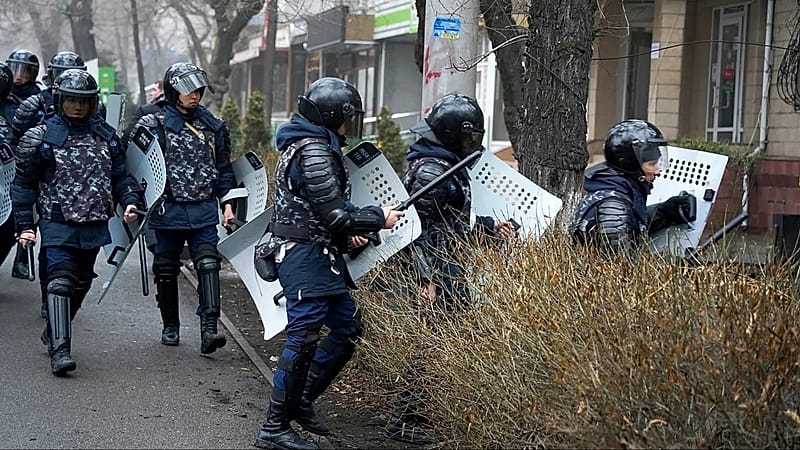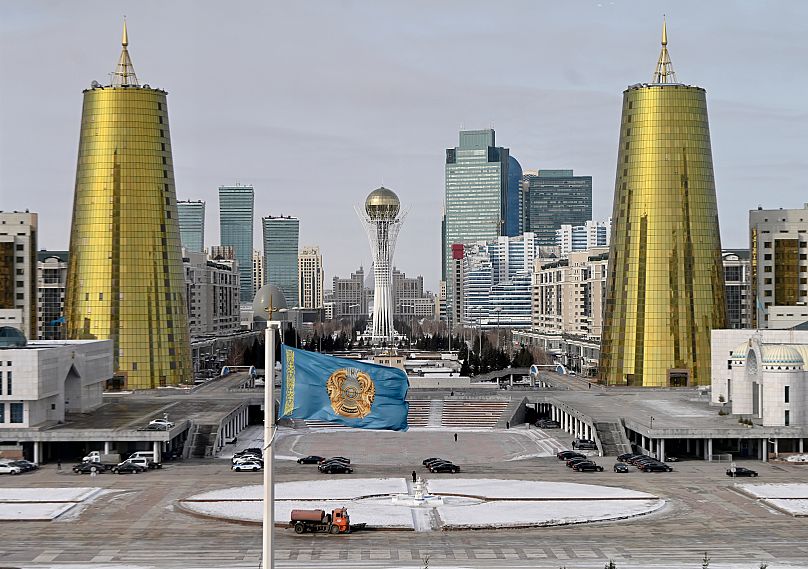Kazakhstan closes 130 crypto platforms in shadow economy crackdown

Kazakhstan has intensified its fight against financial crime, closing 130 cryptocurrency exchanges linked to money laundering and confiscating digital assets valued at $16.7 million (€14.4 million), the Kazakh Agency for Financial Monitoring (AFM) reported.
According to the AFM, these shadow platforms were used by criminal groups across Kazakhstan, Russia, Ukraine and Moldova to launder proceeds from drug trafficking and online fraud.
The agency described the scheme as a multi-step process. Drug dealers and cybercriminals first transferred their profits, either in fiat or cryptocurrency, to exchange wallets, where the funds were converted and routed through a series of transactions to disguise their origin.
“These illicit exchanges act as professional money launderers, cashing out and transferring criminal income abroad,” AFM statement said. “They rely on bank accounts and wallets belonging to front men.”
Under Kazakh law, only platforms licensed by the Astana Financial Services Authority (AFSA) and integrated with the national banking system are permitted to operate. The Authority places strong emphasis on cybersecurity and personal data protection.
“The AFSA rigorously reviews the security of client asset storage during licensing, requiring segregated client accounts and audited IT infrastructure that meets strict cybersecurity standards,” said their statement.
As of Monday, 27 Digital Asset Service Providers (DASPs), including 12 crypto exchanges, are authorised to operate in Kazakhstan. All are subject to ongoing financial monitoring and compliance with anti-money laundering and counter-terrorist financing regulations.
Hidden cash-out networks
The AFM also uncovered 81 clandestine groups that specialised in converting illicit funds into cash, with total transactions exceeding €38.5 million.
In a country that prides itself on its digital payment culture, where you can pay for a loaf of bread with a QR code, cash remains one of the few ways to conceal financial activity.
AFM Deputy Chairman Kairat Bizhanov noted that cash withdrawals continue to grow, reaching €21 billion this year, which is €1.6 billion more than in 2024. ATMs are identified as a major vulnerability in this system.
He emphasised that anonymous transfers remain a key challenge, as they allow money to move through the system without identifying either sender or recipient.
To address this, the AFM and the National Bank of Kazakhstan are introducing new security measures.
Cash deposits exceeding 500,000 tenge (€802) will soon require users to enter a personal identification number. Starting 1 January, banks must also store ATM video footage for at least 180 days.
“Additionally, biometric verification through facial or fingerprint recognition is being considered. These measures will help close loopholes for anonymous transactions,” Bizhanov said.
Other financial violations
Authorities also dismantled 18 illegal facilities producing tobacco and alcohol, and intercepted the unlawful export of petroleum products worth €27 million.
Law enforcement seized €19 million worth of vapes, banned in Kazakhstan since 2024, and shut down 62 underground gambling operations, including 11 online casinos.
“A significant portion of financial violations stems from the activities of shell companies,” Bizhanov added.
Over the past three years, tax authorities have deregistered 3,600 such entities, which had facilitated more than 30,000 fictitious transactions worth €450 million.
Kazakhstan aims to reduce the share of the shadow economy to 15% of GDP by the end of this year, as authorities tighten control over the country’s rapidly digitising financial system.
Today


